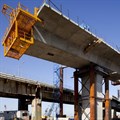Against the backdrop of ongoing measures to address the Covid-19 pandemic in South Africa, the Supplementary Budget 2020 highlighted several key aspects.

Dr Andrew Golding, chief executive of the Pam Golding Property group
Apart from the health and safety aspects so crucial to reducing the impact of this humanitarian crisis, the prioritisation of infrastructure development, including bridges, roads, railways and ports, is positive news, with 177 infrastructure projects already being considered across public and private sectors. Tuesday’s Sustainable Infrastructure Symposium for SA announced that there were already 55 “shovel-ready” infrastructure projects in the pipeline.
This strategy, together with the re-energising of public-private partnerships, augurs well for increased confidence in our economy among investors – both local and international, and the business sector, with broad spin-offs for job creation, industry, communities and ultimately, the property market.
It is also promising to hear that government is working closely with the private sector to green our economy. Fuelled by ever-increasing electricity tariffs, the greening of residential property is an ongoing trend noted in recent years, adding value and appeal for home buyers and tenants.
Foster investment
The recent reductions in the interest rate to 40+ year lows - with the finance minister Tito Mboweni calling for the reduction of long-term interest rates to allow business and households to drive faster economic growth, also bodes well for confidence in the economy in general. This will foster investment, help with job creation and as far as the housing market is concerned, provide incentives for first-time and other home buyers and hopefully, see the start of a recovery in the residential property sector.
As far as the younger generation is concerned, we look forward to further details regarding a repurposed public employment programme and a Presidential Youth Employment Intervention, as the youth are indeed the future of this country. They also comprise a rapidly growing percentage of aspirant and savvy home buyers, eager to invest in owning their own homes and planning for the future. The lifting of the threshold for transfer fees to R1m announced in the Budget in February has already gone some way towards making purchasing a home more accessible for first-time home buyers, as ooba data shows that the average home purchased by first-time buyers was just under R980,000.
What is also evident is that the country needs to continue opening its economy in order to revive sectors hardest hit by the lockdown, including tourism, which is an important source of GDP (8.6% of GDP and supports some 1.5 million jobs).
Moving forward, structural reform and addressing the challenges of key state-owned enterprises remains crucial in creating a favourable environment for the return of investment and growth and to restore fiscal credibility.

















































